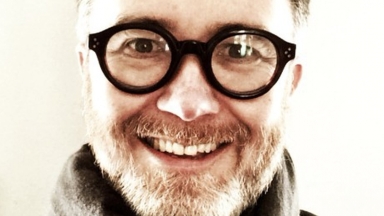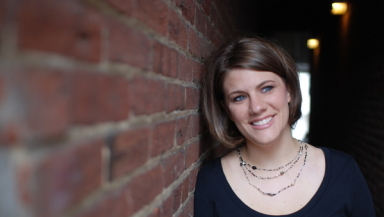
A war of words about whether Christians in America are persecuted, and whether or not they should withdraw from mainstream society, has broken out between the conservative author Rod Dreher and the progressive evangelical writer Rachel Held Evans.
The row centres around what Dreher has dubbed 'The Benedict Option', the title of his new book, in which the senior editor at The American Conservative argues that the 'culture war as we knew it is over' and that social and religious conservatives 'have been defeated and are being swept to the political margins'.
To those who argue that the election of Donald Trump undermines this case, Dreher is clear: 'The idea that someone as robustly vulgar, fiercely combative, and morally compromised as Trump will be an avatar for the restoration of Christian morality and social unity is beyond delusional,' he writes.
The answer, says Dreher, is to follow the example of the Benedictine order of Catholic monks and set up local Christian communities of their own. The image on the book's cover is of a fortified island monastery in France, Mont Saint-Michel. Dreher goes so far as to suggest, for example, that conservative Christians should take their children out of public and 'mediocre Christian' schools, and ignore politics.
Enter, stage left, Rachel Held Evans, who posted a series of critical tweets.
An entire industry of books, films, & orgs reinforce this narrative. I call it the White Christian Industrial Persecution Complex.
— Rachel Held Evans (@rachelheldevans) March 8, 2017
White Christians have enough influence to hand Donald Trump the presidency. They are NOT a marginalized group in our society. — Rachel Held Evans (@rachelheldevans) March 8, 2017
'The #BenedictOption is based on the premise that Christians in the US are such a persecuted minority they must withdraw from society,' she said.
'Christians are NOT a persecuted minority in the US. Christians make up 75 per cent of population and 91 per cent of Congress,' she added.

She also pointed out that white Christians 'have enough influence to hand Donald Trump the presidency. They are NOT a marginalized group in our society.'
And she said that an 'entire industry of books', films and organisations 'reinforce this narrative'. She concluded: 'I call it the White Christian Industrial Persecution Complex.'
Over to Dreher: '[If] someone who believes the things about Christianity that Rachel Held Evans professes approved of The Benedict Option, I would wonder what I had done wrong. So I take this as a vote of confidence.'
Dreher, who accuses Held Evans of not having read the book, clarifies that 'the only "persecution" part of the book' is the chapter about the workplace. He continues: 'I'm not worried about what Rachel Held Evans has to say about The Benedict Option, though if she actually reads it one day, it would be interesting to see if she still stands by her erroneous prejudices. No, what I'm worried about is that far in the future, should the police come looking for dissident orthodox Christians hiding out from state persecution, the Rachel Held Evanses of the world will point helpfully and patriotically, and say, "They're in the basement, officer."'
A disclaimer is due here: this author, too, has not read the book. But to be fair to Held Evans, it appears logical that even if a section on alleged persecution of Christians in the US is confined to one chapter entitled 'Work', then readers are encouraged to withdraw from the work-place where they have been defeated.
However, the fact that Dreher does confine the idea of persecution to one chapter is surely a subliminal admission that it would, indeed, be absurd to suggest that Christians in America are the victims of 'persecution' as they are in, say, the Middle East, Africa or many other parts of the world. Rowan Williams, the former Archbishop of Canterbury and no liberal despite conventional wisdom, has said that it is wrong to say that western Christians are persecuted, and that those who say they are should 'grow up'.
On top of this, surely there is a hint not just of defeatism but also of a dereliction of duty for Christians to withdraw from the world. Just as we begin this season by going out into the streets, of Lent with the mark of the cross on our foreheads, so, less symbolically, evangelicals would argue that we have a duty to engage in society as it is today. After all, the trend towards secularism may, just possibly, be transient, and Dreher's nightmare scenario of police rounding up Christians may not come to pass.
And yet, there is something inherently attractive about Christian community life. Which Christian, if they had the discipline, would not benefit from the monastic approach? Dr Williams himself is an advocate.
But ultimately the vast majority of us are fated to work in the world, for better or worse and whether or not we really want to.













